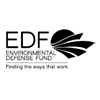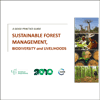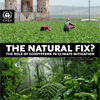Manitoba Wildlands' Climate Change Reports page features publications from civil society groups, including non-government organizations (NGOs), environmental NGOs (ENGOs), faith groups, labour groups, industry and educational and research institutes. Although reports may come from anywhere in the world, our focus will be on Canadian sources.
We have tried to keep categories simple and clear. Some reports could go in more than one category, so if it is not found in one category, keep looking! Each month we will feature one or two new climate change reports in our 'Featured Report' box found below.
Manitoba Wildlands does not necessarily recommend or endorse the contents of publications we list here. The source/author of the report or other material is responsible for its content, factual basis and opinion(s) expressed within.
CO2 Emmissions from Fuel Combustion
 International Energy Agency
International Energy Agency
In efforts to inform decision making at the UN Climate Change Conference in Cancun, Mexico, at the end of the year, the International Energy Agency (IEA) has released a highlights version of its global "CO2 Emissions from Fuel Combustion".
 Download October 2010 Report (PDF) Download October 2010 Report (PDF)
|
State of the Climate in 2009
 National Oceanic and Atmospheric Administration
National Oceanic and Atmospheric Administration
Pulling together data from 10 climate indicators measured by 160 research groups in 48 countries, this report shows that the world is hotter than ever.
 Download July 2010 Report (PDF), Website Download July 2010 Report (PDF), Website
|
The Future of West Antarctic Ice Sheet: Observed and Predicted...
 Antarctic and Southern Ocean Coalition
Antarctic and Southern Ocean Coalition
Information paper provides recommendations concerned with maintaining the scientific and environmental integrity of Antarctica.
Website
|
Replenishment of fish populations is threatened by ocean acidification
 National Academy of Science
National Academy of Science
Australian Research Council's Centre of Excellence for Coral Reef Studies (CoECRS)
Results show additional CO(2) absorbed into oceans will have far-reaching consequences for sustainability of fish populations.
Website
|
Final Investigation Report Involving Dr. Michael E. Mann
 The Pennsylvania State University
The Pennsylvania State University
Panel of leading scholars investigated climate change researcher Michael Mann and determined Mann had not engaged in any actions that seriously deviated from accepted practices for proposing, conducting or reporting research.
 Download June 2010 Report (PDF) Download June 2010 Report (PDF)
|
Expert credibility in climate change
 National Academy of Science
National Academy of Science
Survey of 1,372 climate researchers and their publication and citation data, results show that 97–98% of the climate researchers most actively publishing support the tenets of anthropogenic climate change.
 Download June 2010 Report (PDF), Website Download June 2010 Report (PDF), Website
|
Physical Climate Science since IPCC AR4: A brief update on new...
 Norden
Norden
Provides an update of the IPCC Fourth Assessment Report (AR4). Considers progress in understanding human and natural drivers of climate change, climate observations, key climate feedback, as well as ocean acidification.
Website
|
National Inventory Report 1990-2008: Greenhouse Gas Sources and...
 Environment Canada
Environment Canada
The National Inventory Report includes an inventory of anthropogenic (human-induced) emissions by sources, and removals by sinks, of the six main GHGs.
Website
|
Advancing the Science of Climate Change
 National Academy of Science, USA
National Academy of Science, USA
Recommends a single federal entity be given authority and resources to coordinate a national research effort aimed at improving understanding and responses to climate change.
 Download May 2010 Report (PDF), Website Download May 2010 Report (PDF), Website
|
Ecosystem Carbon Stock Influenced by Plantation Practice:...
 Liao C, Luo Y, Fang C, Li B
Liao C, Luo Y, Fang C, Li B
Uses a meta-analysis of 86 experimental studies to examine the potential of forest plantations to sequester carbon.
Website
|
Backgrounder on the state of climate science in light of recent claims
 The Pembina Institute
The Pembina Institute
Reviews several recent "scandals" regarding climate change science, and concludes that veracity of climate theories remains unchanged and urgent action is still needed.
 Download April 2010 Report (PDF), Website Download April 2010 Report (PDF), Website |
Climate Change Indicators in the United States
 U.S. Environmental Protection Agency
U.S. Environmental Protection Agency
The report presents 24 indicators, each describing trends related to the causes and effects of climate change.
 Download April 2010 Report (PDF), Website Download April 2010 Report (PDF), Website |
Wood-Fueled Biomass Power Plants and CO2 Emissions
 Chris Matera, Massachusetts Forest Watch
Chris Matera, Massachusetts Forest Watch
Wood fueled biomass power plants shown to be worse than all fossil fuel power plants, including coal, for carbon dioxide emissions per unit of energy produced.
 Download March 2010 Report (PDF), Website Download March 2010 Report (PDF), Website
|
Reconstruction of river runoff to the Baltic Sea, AD 1500-1995
 Hansson, Eriksson, Omstedt, & Chen
Hansson, Eriksson, Omstedt, & Chen
River runoff to the Baltic Sea since 1500 is reconstructed showing the important atmospheric processes for river runoff in different regions.
Website
|
An Initial Estimate of Cost of Lost Climate Regulation Services Due to...
 The Pew Charitable Trusts
The Pew Charitable Trusts
The first attempt to estimate a dollar cost of global warming brought about by shrinking ice, snow and permafrost.
 Download February 2010 Report (PDF) Download February 2010 Report (PDF)
|
What We Know, Do Not Know, and Need to Know about Climate Change...
 Environmental Research Letters
Environmental Research Letters
A systematic review of scientific literature to identify and characterize climate change vulnerability in the Western Canadian Arctic and identify adaptations and gaps in understanding.
 Download 2010 Report (PDF), Website Download 2010 Report (PDF), Website |
Soil Carbon Sequestration in U.S. Rangelands: Issues Paper for Protocol...
 Environmental Defense Fund
Environmental Defense Fund
An overview of issues associated with development of a GHG emissions reductions protocol for soil carbon sequestration in US rangelands.
 Download December 2009 Report (PDF) Download December 2009 Report (PDF) |
Boreal Forest and Climate Change
 Swedish Air Pollution and Climate Secretariat, Taiga Rescue Network
Swedish Air Pollution and Climate Secretariat, Taiga Rescue Network
Report states the world's boreal forests will likely not be able to respond to global warming by migrating northwards
 Download December 2009 Report (PDF), Website Download December 2009 Report (PDF), Website |
Sequestering carbon dioxide in a closed underground volume
 Journal of Petroleum Science and Engineering
Journal of Petroleum Science and Engineering
A new research paper is threatening to blow a hole in growing political support for carbon capture and storage as a weapon in the fight against global warming.
 Download November 2009 Report (PDF) Download November 2009 Report (PDF) |
Good Practice Guide on Sustainable Forest Management: Biodiversity...
 IUCN and CBD
IUCN and CBD
Guide provides range of case studies and other materials to make the forest sector more biodiversity-friendly, and socially beneficial.
 Download November 2009 Report (PDF) Download November 2009 Report (PDF) |
The Carbon the World Forgot
 Canadian Boreal Initiative
Canadian Boreal Initiative
Report shows the global impact of Canada's boreal forest to mitigate and adapt to climate change, storing nearly twice as much carbon per hectare as tropical forests.
 Download November 2009 Report (PDF), Website Download November 2009 Report (PDF), Website |
Climate Change Science and Impacts
 The Pembina Institute
The Pembina Institute
An overview of the latest research on how climate change is affecting our world, and how an average increase of 2°C would affect Canada.
 Download November 2009 Report (PDF), Website Download November 2009 Report (PDF), Website |
Sensitivity of the Carbon Cycle in the Arctic to Climate Change
 David McGuire
David McGuire
Arctic lands and oceans absorb up 25% of atmospheric CO2. Under current predictions, this sink could be diminished or reversed, potentially accelerating climate change.
 Download November 2009 Report (PDF), Website Download November 2009 Report (PDF), Website |
Climate Change Science Compendium 2009
 UNEP
UNEP
A review of 400 peer-reviewed scientific studies over the last three years that have contributed to our understanding of Earth Systems and climate.
 Download October 2009 Report (PDF), Website Download October 2009 Report (PDF), Website |
Global Congruence of Carbon Storage and Biodiversity in Terrestrial...
 Conservation Letters
Conservation Letters
Use of global data sets on terrestrial biodiversity and carbon storage to map and investigate relationships between carbon and biodiversity-oriented conservation.
 Download September 2009 Report (PDF), Website Download September 2009 Report (PDF), Website |
A Safe Operating Space for Humanity
 Johan Rockstrom
Johan Rockstrom
Researchers identify and quantify limits of humanity's load on our planet, including numerical boundaries for ocean acidification, global nitrogen and phosphorus cycles.
 Download September 2009 Report (PDF), Website Download September 2009 Report (PDF), Website |
Observational Constraints on Recent Increases in Atmospheric CH4...
 Dlugokencky et al.
Dlugokencky et al.
Global atmospheric methane is increasing due to a warming arctic, burning of tropical forests and increased rain in Indonesia and the Amazon.
Website |
Ecological Dynamics Across the Arctic Associated with Recent Climate...
 Post et al.
Post et al.
Rapid changes in the arctic point toward future changes in lower latitudes. Report highlights priorities for ecological research as the Arctic continues to warm.
Website |
Arctic Climate Feedbacks: Global Implications
 WWF
WWF
Global consequences of a warming Arctic are worse than previous projections - from flooding, extreme global weather changes, to increased carbon released from arctic soils.
 Download August 2009 Report (PDF), Website Download August 2009 Report (PDF), Website |
The Large Contribution of Projected HFC Emissions to Future Climate...
 Proceedings of the National Academy of Sciences
Proceedings of the National Academy of Sciences
Emissions of hydrofluorocarbons (HFCs) are projected to grow, especially from developing countries and will become a large factor in future climate warming.
 Download July 2009 Report (PDF), Website Download July 2009 Report (PDF), Website |
Coral Triangle and Climate Change
 WWF
WWF
Report sets out the full extent of threats to the Coral Triangle Region of the Pacific Ocean and proposes solutions to challenges facing the area and its people.
 Download May 2009 Report (PDF), Website Download May 2009 Report (PDF), Website |
The Carbon Balance of Terrestrial Ecosystem in China
 Nature
Nature
China's forests, vegetation and soils help offset carbon dioxide emissions and have absorbed between 28 and 37 percent of industrial emission in the late 1980s and 1990s.
 Download April 2009 Report (PDF), Website Download April 2009 Report (PDF), Website |
The State of the Birds - United States of America 2009
 U.S. North American Bird Conservation Initiative
U.S. North American Bird Conservation Initiative
This State of the Birds report reports troubling US bird populations declines over the past 40 years, with climate change noted as being a significant factor.
 Download March 2009 Report (PDF), Website Download March 2009 Report (PDF), Website |
The State of Polar Research: A Statement from the International Council...
 International Council for Science, World Meteorological Organization Committee
International Council for Science, World Meteorological Organization Committee
Multidisciplinary research from the International Polar Year (IPY) 2007-2008 provides new evidence of the widespread effects of global warming in the Polar Regions.
 Download February 2009 Report (PDF), Website Download February 2009 Report (PDF), Website |
Assessing Dangerous Climate Change...
 National Academy of Sciences of the United States of America
National Academy of Sciences of the United States of America
This study provides evidence that climate consequences will be more severe than were presented in either the TAR or the Fourth IPCC Assessment Report.
 Download February 2009 Report (PDF), Abstract Download February 2009 Report (PDF), Abstract |
Ecosystem-Based Management in the Great Bear Rainforest
 ForestEthics, Greenpeace, Sierra Club BC
ForestEthics, Greenpeace, Sierra Club BC
This report shows that an ecosystem-based approach to logging in the Great Bear Rainforest would maintain old growth forest, result in massive carbon storage, and allow the ecosystem to adapt to climate change without a major loss of species.
 Download February 2009 Report (PDF), Website Download February 2009 Report (PDF), Website |
Climate Change 101: Science and Impacts
 Pew Center on Global Climate Change
Pew Center on Global Climate Change
Scientific Evidence regarding climate change, associated impacts and causes. Part 1 of 8.
 Download January 2009 Report (PDF), Website Download January 2009 Report (PDF), Website |
Past Climate Variability and Change in the Arctic... SAP 1.2
 US Climate Change Science Program
US Climate Change Science Program
Temperature change in the Arctic is happening at a greater rate than other places in the Northern Hemisphere, and this is expected to continue in the future.
 Download January 2009 Report (PDF), Website Download January 2009 Report (PDF), Website |
Atmospheric Aerosol Properties and Climate Impacts SAP 2.3
 US Climate Change Science Program
US Climate Change Science Program
Scientists need a more detailed understanding of how aerosols, affect climate in order to produce better predictions of Earth's future climate.
 Download January 2009 Report (PDF), Website Download January 2009 Report (PDF), Website |
Thresholds of Climate Change in Ecosystems SAP 4.2
 US Climate Change Science Program
US Climate Change Science Program
Slight changes in climate may trigger major abrupt ecosystem responses that are not easily reversible and adversely affect people and ecosystems.
 Download January 2009 Report (PDF), Website Download January 2009 Report (PDF), Website |
Coastal Sensitivity to Sea-level Rise SAP 4.1
 US Climate Change Science Program
US Climate Change Science Program
This report discusses the impacts of sea-level rise on the physical characteristics of the coast, on coastal communities, and the habitats that depend on them.
 Download January 2009 Report (PDF), Website Download January 2009 Report (PDF), Website |
Best Practice Approaches for Characterizing, Communicating... SAP 5.2
 US Climate Change Science Program
US Climate Change Science Program
This report presents a summary of methods and strategies to characterize, analyze, and deal with uncertainty as it relates to climate change and its effects.
 Download January 2009 Report (PDF), Website Download January 2009 Report (PDF), Website |
Retooling the Planet: Climate Chaos in a Geoengineering Age
 Swedish Society for Nature Conservation
Swedish Society for Nature Conservation
Examines the politics, social, and ecological implications of attempts to add large-scale, intentional manipulation of the climate system to menu of responses to climate change.
View 2009 Report |
The Copenhagen Diagnosis: Climate Science Report
 Intergovernmental Panel on Climate Change
Intergovernmental Panel on Climate Change
Report synthesizes the most policy-relevant climate science published since the close-off of material for the last IPCC report.
 Download 2009 Report (PDF), Website Download 2009 Report (PDF), Website |
Forest Resilience, Biodiversity, and Climate Change
 Convention on Biological Diversity
Convention on Biological Diversity
A synthesis report about forest stability, health and biodiversity, strongly supports conclusion that forest resilience depends on biodiversity, at multiple scales.
 Download 2009 Report (PDF), Press Release Download 2009 Report (PDF), Press Release |
UK Climate Projections 2009 (UKCP09)
 UK's National Weather Service
UK's National Weather Service
Provide information on how the UK's climate is likely to change in the 21st century, as it responds to rising levels of greenhouse gasses in the atmosphere.
 Download 2009 Report (PDF), Website Download 2009 Report (PDF), Website |
The Natural Fix?: The Role of Ecosystems in Climate Mitigation
 United Nations Environment Program
United Nations Environment Program
This Rapid Assessment Report describes the vital contributions which ecosystems can combat climate change through the capture and storage of carbon.
 Download 2009 Report (PDF), Website Download 2009 Report (PDF), Website |
Forests in a Changing Climate
 Friends of the Earth International
Friends of the Earth International
This report aims to bring together current and/or relevant research to inform discussion about reducing carbon emissions from deforestation.
 Download December 2008 Report (PDF) Download December 2008 Report (PDF) |
Review of Existing Information on Interrelations Between Soil and...
 ClimSoil
ClimSoil
This study assesses the contribution soils can make to climate change mitigation and the effect of climate change on soil productivity and organic matter depletion.
 Download December 2008 Report (PDF), Website Download December 2008 Report (PDF), Website |
Climate Change: Faster, Stronger, Sooner
 WWF International
WWF International
This report shows climate change is accelerating faster than forecasted by Intergovernmental Panel on Climate Change (IPCC) in 2007.
 Download October 2008 Report (PDF), Website Download October 2008 Report (PDF), Website |
Global Glacier Changes: Facts and Figures
 UN Environment Program
UN Environment Program
Mounting evidence suggests climate change has triggered shrinking and thinning of glaciers worldwide; eventually water supplies may be at risk.
 Download September 2008 Report (PDF), Website Download September 2008 Report (PDF), Website |
Climate Science 2007: Major New Discoveries
 World Resources Institute
World Resources Institute
Climate change has begun to significantly alter ecosystems as well as the services humans derive from them.
 Download September 2008 Report (PDF), Abstract Download September 2008 Report (PDF), Abstract |
Degradation in Environment Canada's Climate Network, Quality...
 Pembina Institute
Pembina Institute
The report documents a pattern of underinverstment and cuts that weaken Environment Canada's ability to accurately track the weather.
 Download June 2008 Report (PDF) Download June 2008 Report (PDF)
|
Effects of Climate Change on Agriculture, Land Resources... SAP 4.3
 US Climate Change Science Program
US Climate Change Science Program
An assessment of effects of climate change on U.S. agriculture, land resources, water resources, and biodiversity.
 Download June 2008 Report (PDF), Website Download June 2008 Report (PDF), Website |
Factsheet: Effects of Climate Change on Arctic Vegetation
 WWF
WWF
Part of a factsheet series - Concludes reduced plant diversity caused by climate change results in reduced biodiversity in other links in the food chain.
 Download February 2008 Report (PDF), Website Download February 2008 Report (PDF), Website |
Factsheet: Effects of Climate Change on Arctic Migratory Birds
 WWF
WWF
Part of a factsheet series - Concludes new bird species migrating north as a result of climate change could import new diseases and parasites, threatening indigenous species.
 Download February 2008 Report (PDF), Website Download February 2008 Report (PDF), Website |
Factsheet: Effects of Climate Change on Arctic Fish
 WWF
WWF
Part of a factsheet series - Concludes climate change could be an added threat to fish stocks.
 Download February 2008 Report (PDF), Website Download February 2008 Report (PDF), Website |
Factsheet: Effects of Climate Change on Polar Bears
 WWF
WWF
Part of a factsheet series - Concludes continued reduction in sea ice during the summer could cause two thirds of the polar bear population to become extinct by 2050.
 Download February 2008 Report (PDF), Website Download February 2008 Report (PDF), Website |
Factsheet: Effects of Climate Change on Reindeer
 WWF
WWF
Part of a factsheet series - Concludes fragmentation of reindeer habitat limits options for adapting to a rapidly changing climate and could prove to be fatal.
 Download February 2008 Report (PDF), Website Download February 2008 Report (PDF), Website |
Arctic Report Card 2008
 J. Richter-Menge, et al.
J. Richter-Menge, et al.
Report Card presents recent observations of Acrtic environmental conditions. It updates the State of the Arctic Report, published in fall 2006.
 Download 2008 Report (PDF), Website Download 2008 Report (PDF), Website |
Understanding and Responding to Climate Change: Highlights...
 The National Academies (US)
The National Academies (US)
This booklet presents recommendations from the National Academies' expert reports on climate change in easy-to-read format.
 Download 2008 Report (PDF), Website Download 2008 Report (PDF), Website |
Abrupt Climate Change: Final Report, SAP 3.4
 US Climate Change Science Program
US Climate Change Science Program
A summary of current assessments from climate change science in the US, report is intended to inform public debate, policy, and decisions.
 Download 2008 Report (PDF), Website Download 2008 Report (PDF), Website |
Carbon Sequestration Atlas of the United States and Canada
 U.S. Department of Energy, National Energy Technology Laboratory
U.S. Department of Energy, National Energy Technology Laboratory
This atlas provides an assessment of carbon capture and storage (CCS) potential across the United States and western Canada. Maps show the number and magnitude of all CO2 sources and capacity of geological CO2 sequestration sites.
 Download March 2007 Report (PDF), Website Download March 2007 Report (PDF), Website |
Climate Science 2005: Major New Discoveries
 World Resources Institute
World Resources Institute
2005 was the year climate change research demonstrated that the physical consequences of climate change are no longer theoretical; they are real and can be quantified.
 Download March 2006 Report (PDF), HTML Download March 2006 Report (PDF), HTML |

 2002-2014
2002-2014

 Download
Download 
































